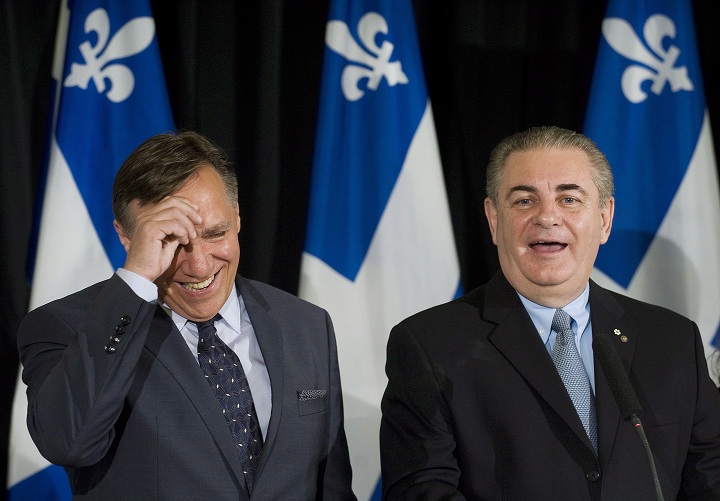MONTREAL — Jacques Duchesneau is furious after former construction magnate Tony Accurso testified at Quebec’s corruption inquiry on Friday that he gave $250,000 to help the former Montreal police chief.

“It’s false, it’s completely false,” Duchesneau said in a radio interview at noon on Friday, calling Accurso either an “imbecile or a liar.”
He insisted that his campaign debt was paid by a personal friend, the late Ben Weider, and not by Accurso.
“When I met Tony Accurso, my debt was already paid, I had left municipal politics. It’s a settling of accounts. He will say anything to get out of this mess.”
READ MORE: Star witness at corruption inquiry admits Rizzuto a contact
Accurso dropped the bombshell about paying off Duchesneau’s debt on Friday during his testimony at the Charbonneau Commission, which is investigating corruption in the province’s construction industry.
According to Accurso, Duchesneau was in debt after a failed bid to become mayor of Montreal in 1998.
He explained he was approached by a man named Richard, who was part of Duchesneau’s entourage, and who set up a meeting with him.

Get breaking National news
The former construction magnate accused of corruption, fraud and income tax evasion said he then handed over a cheque for $250,000, made out to the name of Richard’s company.
Accurso said that Duchesneau promised to help him and return the favour when he got back on his feet and found employment elsewhere.
READ MORE: Profile of Jacques Duchesneau
Duchesneau is considered an outspoken critic of corruption in Quebec.
After campaigning unsuccessfully against Pierre Bourque for the mayor’s job in 1998, after four years as police chief of Montreal, he went on to become head of the anti-corruption unit within the Transport Department.
Duchesneau then produced a damning report on corruption in the construction industry and testified at a Quebec legislature committee examining his report in 2011.
A year later, he ran in the provincial election as a star candidate for Coalition Avenir Quebec.
Party leader, François Legault, said Friday that Duchesneau no longer had any connection with the CAQ.
READ MORE: CAQ star Jacques Duchesneau won’t run in next Quebec election
Legault said that when he first invited Duchesneau to join his party, he asked him whether he had anything to be ashamed about regarding political financing. Duchesneau said no.
Quebec’s premier also weighed in on the bombshell from the Liberal Party caucus in La Malbaie.
“I’m going to be very prudent here obviously because Mr. Accurso testified on certain elements which were immediately denied by Mr. Duchesneau,” Philippe Couillard said Friday.
“I have no tools here to choose which one is the right version. For this, we have to depend on the judgement of the Commission, whether they will choose to pursue the issue or make more verifications. It is up to them. I will not say more than that.”
— With files from Mike Armstrong and The Canadian Press




Comments